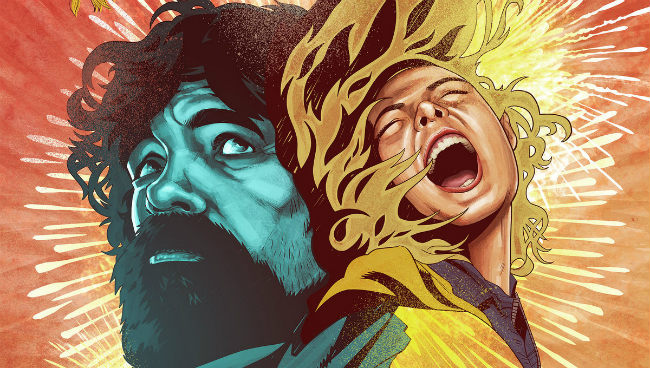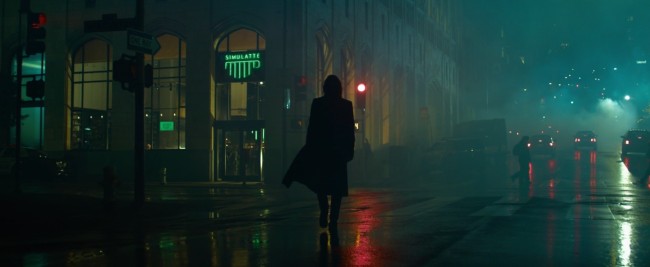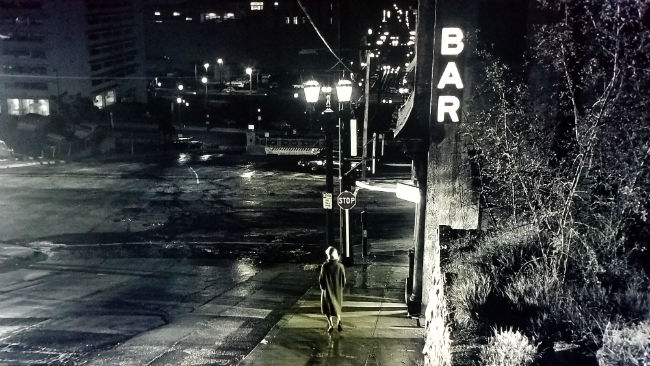I Think We’re Alone Now The Review

No explosions. No zombies. No fighting over resources. I Think We’re Alone Now is more than these tropes put together.
T.S. Elliot wrote the world will end not with a bang but with a whimper. For much of its history, whether in Things to Come (1936) or Netflix’s recent How it Ends, Hollywood has depicted the end not as a whimper but as a bang. Elliot would be proud of Reed Morano’s I Think We’re Alone Now.
I Think We’re Alone Now, Morano’s second full length movie as a director, is an apocalyptic movie without the Apocalypse. There are no groups of survivors fighting zombies or marauders roaming the wasteland in cobbled together vehicles fighting for oil. Morano isn’t interested in any of these things. When Del (Peter Dinklage) is asked what may have caused the death of most of Earth’s population he answers “Who cares?” Morano for one does not care.
I Think We’re Alone Now is more about isolation, loneliness, and learning to accept others than any unnamed exterior event. The end result is more important than the events leading up to Del’s isolation from the rest of the world. Del, and the viewer, assumes he’s the last person on earth. His days consist of cleaning houses, searching for batteries, burying the dead, fishing, and keeping the library in working order.
Del’s world is ordered and tidy. It may seem like he could on this way until his final days. However, Del’s finely crafted charade starts to crumble when Grace (Elle Fanning) literally crashes into his life. Grace is an extrovert of chaotic proportions compared to Del’s introvert mentality. His strong man facade breaks down the more Grace is around.
Del wants it to seem he was alone but not lonely. However, nothing could be further from the truth. Del was alone, isolated, even before the unnamed event occurred. Grace asks him where he was when everyone died. He was sleeping while she was “with a boy.” Del had nothing to lose while Grace had everything to lose.
Just when you have become comfortable with the idea of a movie about the end of the world having more to do with loneliness and learning to trust someone the film sets things on its head. Grace’s “parents”, Patrick and Violet, (Paul Giamatti, Charlotte Gainsbororgh) arrive unannounced at Del’s house. There’s no explanation how Grace’s “parents” found her. There’s also no reason why it should be explained. It’s enough just to know they found her.
Del feels betrayed Grace didn’t tell her she had parents or even that there were other people left in the world. There’s more to these parents than meets the eye. We know what happened to her real parents. Her real parents died along with thousands of other people. Grace, pleading with Del to let her stay, says “They paired me up” with them. Even more odd Patrick talks to Del about the great things “top surgeons are doing” doing in California.
The dystopian world Patrick is talking about wipes emotions from people. In Patrick’s perfect California town people don’t remember the past nor do they remember the pain of losing family and friends. They have no emotions. People are jogging, playing, and gardening. Things are bright and shiny compared to the overcast skies of Del’s town. The catch is they don’t feel a thing. It’s more of a sham than Del wanting to be alone.
I Think We’re Alone Now was a small movie in 2018. The cast consists of four people and a handful of extras. Yet with powerful performances by Dinklage, Fanning, Giamatti, and Gainsbororgh it feels like a big movie. If you’re looking for explosions and end of the world madness check out Mad Max: Fury Road. You won’t find those things in I Think We’re Alone Now. What you will find is a movie about loss, love, grief, and two finding themselves at the end of the world.
A+









